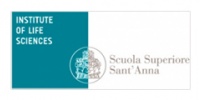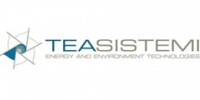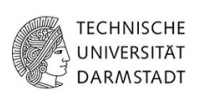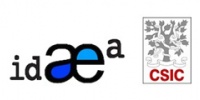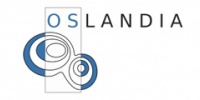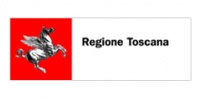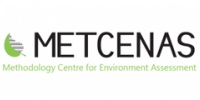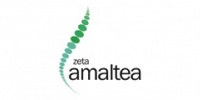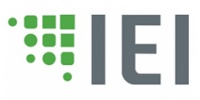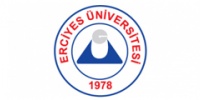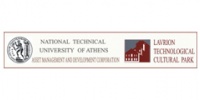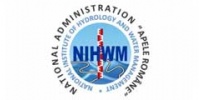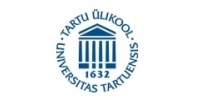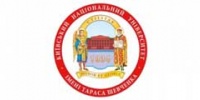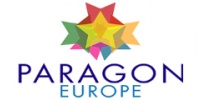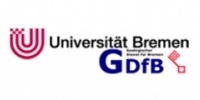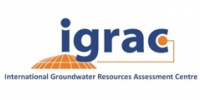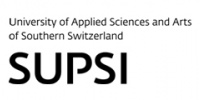 This project has received funding from the European Union’s Horizon 2020 research and innovation programme under grant agreement No 642224
This project has received funding from the European Union’s Horizon 2020 research and innovation programme under grant agreement No 642224
OPEN WORKSHOP
“ICT tools for innovating Groundwater Management in a changing world”
22nd September 2017
Assembly Hall Pascual Vila
CID - CSIC, 16 Jordi Girona
Barcelona (Spain)
The International Workshop ICT tools for innovating Groundwater Management in a changing world took place on September 22nd in Barcelona (Spain) at the Spanish Research Council (CSIC) premises.
The workshop, chaired by Enric Vázquez-Suné (IDAEA-CSIC), was co-organized by the EU HORIZON 2020 FREEWAT project and the Institute of Environmental Assessment and Water Research (IDAEA, environmental institute within the CSIC), partner of the project, within the context of the European Innovation Partnership on Water – Action Groups “Managed Aquifer Recharge Strategies and Actions” and “Water & Irrigated agriculture Resilient Europe” and the ICT4WATER cluster initiative.
Challenging uncertainties in managing groundwater resources lead the European Union to invest in understanding, estimating and looking for innovative ways to deal with future scenarios. This is particularly true in the Mediterranean areas, where water scarcity is a major problem, and groundwater is a critical resource that needs to be carefully managed. The views of relevant keynote speakers on how Information and Communication Technology (ICT) tools may help in improving groundwater management were presented during the Workshop.
During the first session, Gabriel Anzaldi Varas (ICT4WATER cluster – Eurecat, Spain) presented the EU initiative of the ICT4Water cluster and in particular the Action Plan to Digital Single Market for Water. This action plan sets out a concrete and ambitious strategy to support the transition towards a digital single market for water services. Anzaldi highlighted as a continued, broader commitment of all stakeholders concerned is necessary. The ICT4Water invites the Digital Water community to endorse this action plan and to actively promote its implementation, in close cooperation with all relevant water actors. Emilio Custodio (Universitat Politècnica de Catalunya, Spain) discussed the present problems, benefits and results of groundwater reserve consumption. In his talk, he focused on the need to improve integrated water resources management efficiency, and to regulate groundwater mining as a transient evolution under the social and economic circumstances of the moment. Antoni Munné (Catalan Water Agency, Spain) provided the audience with a general overview on water quality monitoring in Catalonia. He closed presenting the Programme of Measures (POM) foreseen for 2017-2021, leading to good status about 45% of Catalan RBD water bodies in 2021, according to the Water Framework Directive, at the cost of about 1 Billion €. Andrea Gigliuto (ERM, Italy) introduced the experience and vision of a large multinational company on the ICT opportunities in a global water market. In his talk, Gigliuto pointed out the use of ICT tools able to smooth the flow of data from data acquisition, storage, analysis and communication/reporting will be central for companies working in the water sector.
Then, a session dedicated to ICT tools provided by the H2020 FREEWAT project started; Rudy Rossetto (H2020 FREEWAT Coordinator - Scuola Superiore Sant'Anna, Italy) presented the results and achievements of the project. The FREEWAT platform is now a large QGIS plugin allowing to couple the power of GIS geo-processing and post-processing tools in spatial data analysis with that fully distributed and numerically-based codes of the MODFLOW family (USGS), and other software applications, and the SpatiaLite spatial database. Since its initial release (April 2017) it has been used and downloaded by more than 1500 unique users. Presentations on the applications of the FREEWAT platform to different case studies and different users (public authorities, companies, and research institutions) followed. Manuel Sapiano (The Energy & Water Agency, Malta) presented the use of FREEWAT for optimising the management of the Gozo Mean Sea Level Aquifer (Malta) and stressed the point of the importance of evaluating the impact of the spatial distribution of groundwater abstraction especially when dealing with seawater intrusion problems. The application of FREEWAT to the Bakumivka River's catchment (Michael Grodzynskyi, National Taras Shevchenko University of Kyiv, Ukraine) demonstrated how, in scenario simulations, no single one, but few types of hypothetic land cover patterns with few schemes of spatial distribution of water bodies could be regarded as optimal. The variety of optimal decisions is then the ground for adaptive water/land(scape) management and planning. Angel Utset (Zeta Amaltea, Spain) highlighted how this kind of software tools can be promising in terms also of development of business opportunities for companies within ongoing initiatives in EU such the EIP AGRI. Giovanna De Filippis (Scuola Superiore Sant'Anna, Italy) discussed the advantage of using the participatory approach along with ICT tools for evaluating the benefit of setting-up blue infrastructures in the provision of water-related agro-ecosystem services in the Massaciuccoli lake case study (Italy).
Further on, two H2020 projects brought their experiences to the audience. Anna Osan (H2020 Fatima Coordinator - Universidad de Castilla-La Mancha & AgriSat Iberia s.l., Spain) proposed an imaginative definition of ICT introducing the term Transparency instead of technology, bringing to the audience a reflection on the need of open and shared data acquisition and distribution. Finally, Laia Llenas Argelaguet (University of Vic-Central University of Catalonia, Spain) described the content of innovation inside the H2020 INCATCH project in terms of development and application of innovative monitoring tools for river and lake water quality.
About 80 participants had the possibility to share their views, comments and to pose questions to the speakers both during the presentations and the final discussion.
All the speakers agreed on the fact that ICT tools have to be set in the context of the local social and economic conditions to be fully operational and that open data and open software efforts, also within the framework of the Digital Agenda for Europe, may constitute a breakthrough in groundwater management. Capacity building should be however at the core of any initiative in order to foster the application of innovative and initially more complex data acquisition and analysis tools for boosting evidence-based decision-making.
The event programme is available here.
The event story line can be downloaded here.
Workshop material:
- Action Plan to Digital Single Market for Water, ICT4Water Cluster – G. Anzaldi Varas
- Water mining in Spain: current and future economic and social connotations – E. Custodio
- Water quality monitoring and control in Catalonia - A. Munné
- The H2020 FREEWAT project results and future - R. Rossetto
- ICT opportunities in a global water market. ERM experiences and vision - A. Gigliuto
- Exploring the use of modelling tools within the participatory approach to manage the water resource in the Massaciuccoli lake basin - G. De Filippis
- Bakumivka River Catchment management through rural land use scenarios - M. Grodzynskyi
- Optimising the management of the Gozo Mean Sea Level Aquifer (Malta) - M. Sapiano
- Implementing Nitrates Directive: A FREEWAT-based simulation of Action Program reliability - A. Utset
- ICT tools for sustainable agriculture - A. Osann
- The INTCATCH tools and their demonstration – L. L. Argelaguet

